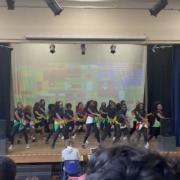
After reading this article by The Guardian, I was surprised to observe that many young people are, in fact, not in favour of lowering the voting age to 16 – with some even wanting for it to be raised to 21.
Points to note are that the reasoning given for these opinions was not a distrust in their own judgement, but rather a lack of faith in the political awareness of their generation. Also, the sample interviewed for The Guardian’s article consists of 16 to 17-year olds, and having the voting age lowered now would most likely not impact them – considering that the next general election will be held in 2022.
I decided to conduct my own mini-interviews with a range of secondary school students in London, to gauge the opinions of the young people in my community.
“I think the voting age should be lowered because the outcomes are going to affect younger people equally, if not on a greater scale,” said one year seven student.
Another student agreed, and referred to the lack of young people’s ability to influence the EU referendum as “deeply upsetting”.
Indeed, the general consensus among those who I asked was that young people do deserve more of a say in the decisions that shape their country – but many “could understand” the argument against this. They pointed out the lack of political education in schools.
It very much seems that young people’s political education is limited to that obtained during extra-curriculars. People are quick to identify gaps in the worldly knowledge of secondary school-aged people, yet do not seek to fill them. It is clear that we must call for politics and current affairs to be integrated into PSHCE lessons, to arm the youth with knowledge that will allow them to develop informed opinions.
By Noor Mahmood



























